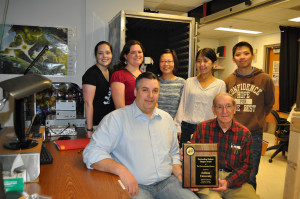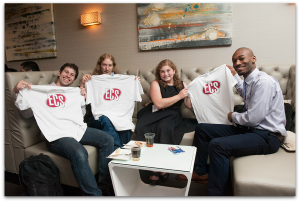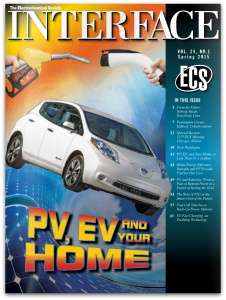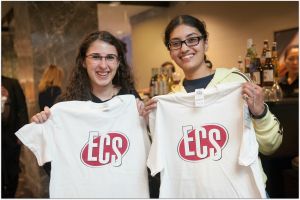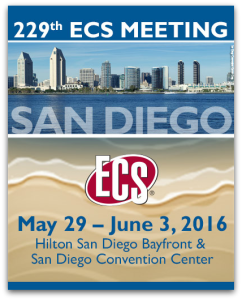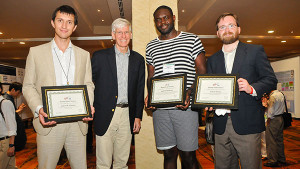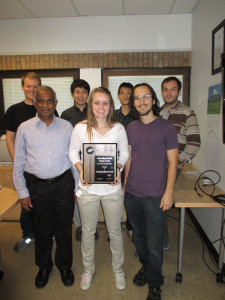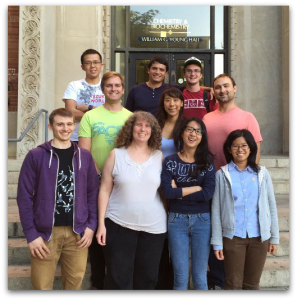
Front: Ben Lesel, Sarah H. Tolbert, Clair Shen, Yan Yan
Middle: Ty Karaba, Terri Lin, John B. Cook
Back: Allen Liang, Erick Harr, Dan Baumann
With collaboration opportunities and innovative workshops, the newly established UCLA student chapter is providing both social and academic experiences for those involved.
Since its approval at the 228th ECS Meeting, the UCLA student chapter has been hard at work creating a robust, multifaceted group where students from all areas of electrochemical science can come together.
“Science, at the entry level, progresses much more efficiently when there is an open dialogue between researchers,” says John Cook, chair of the UCLA student chapter. “Electrochemical science cannot be done alone in a dark room.”
Cook and a collaborator began developing the UCLA student chapter very organically, with the idea that there needed to be a way to bring together the many groups across the campus working in electrochemistry. For Cook, establishing an ECS student chapter was the perfect solution.
“Our main goal is to bring people from different departments together to share ideas,” says Cook. “We want to create an environment in which chemists, engineers, physicists, and even business majors collaborate and share ideas.”


